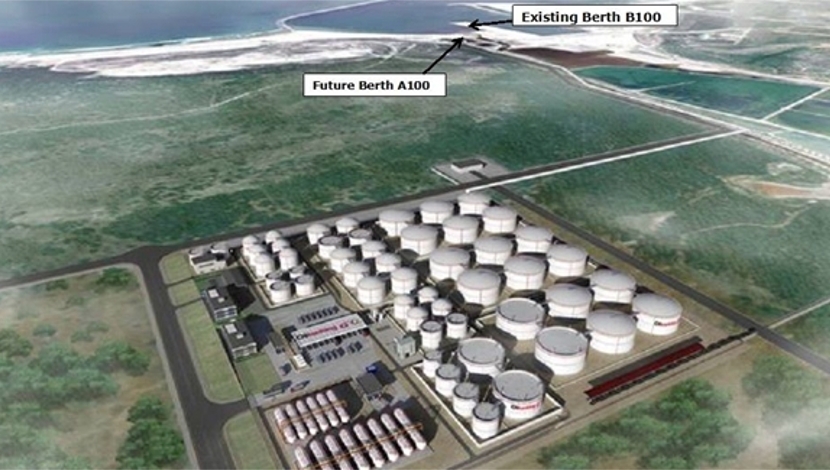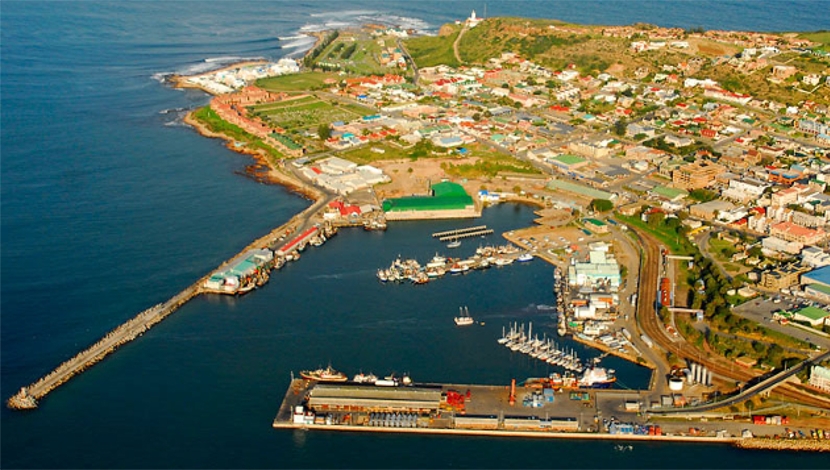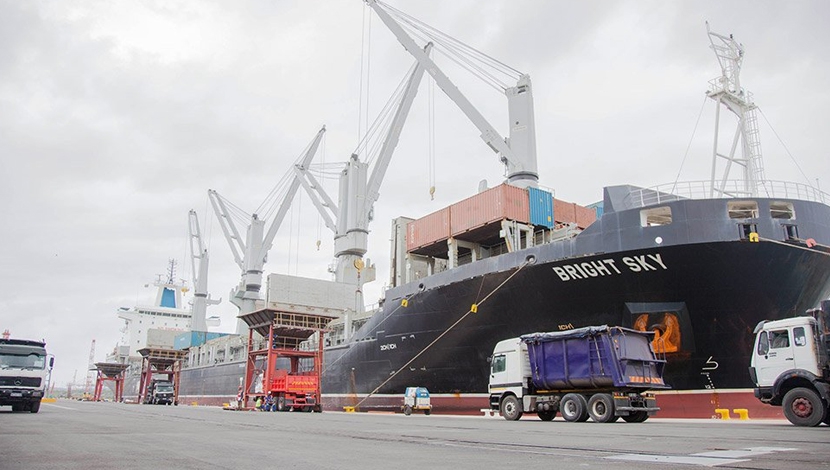

The construction of a new petroleum trading hub at the Port of Ngqura is making progess, ahead of the planned decommissioning and rehabilitation of the existing liquid bulk facilities at the neighbouring Port of Port Elizabeth.
A sod-turning ceremony is expected in January 2018 to mark the start of construction of the new Oiltanking Grindrod Calulo (OTGC) tank farm and new main access road. Fabrication of the tanks and optional liquified petroleum gas bullets is scheduled to start in April 2018.
Transnet National Ports Authority (TNPA) has completed the critical design work associated with the new tank farm infrastructure and constructed a new access road from the N2 highway to the 20-hectare site where OTGC will be constructing the new tank farm. A new port entrance plaza and pipeline servitude will be constructed that will form the link between the new tank farm and the port of Ngqura. Tenders would be issued in January 2018 for the tank farm bulk earth works package and the main access road construction package to Berth B100.
“These developments signal progress in TNPA’s plans to clean up terminal facilities and free up land in the Port of Port Elizabeth for future commercial and tourism development, while enabling Ngqura to play a vital role in securing South Africa’s future fuel supply,” said TNPA chief executive, Shulami Qalinge.
In line with National Ports Act
Earlier this year, TNPA concluded an agreement with OTGC to plan, fund, construct, own, maintain and operate the new facility. The ports authority is required to provide port infrastructure for the liquid bulk terminal to commence operations at the end of 2019. Liquid bulk capacity will be increased from two-million tons per annum for the immediate hinterland to three-million tons per annum once the new liquid bulk terminal is operational.
Qalinge said TNPA is delighted to have a world-class independent liquid bulk storage provider on board, through a Section 56 process of the National Ports Act which mandates TNPA as landlord and ports master planner, to contract with private terminal operators to design, construct, develop, finance, maintain and operate port terminals or facilities.
Under Transnet’s market demand strategy (MDS), concessions across the eight commercial ports are opening up participation in port activities to businesses owned by historically disadvantaged individuals. OTGC is a majority South African owned level 1 BBBEE company. The Ngqura facility is Oiltanking’s first holding in a South African fuel terminal, whereas for Calulo, being involved in all aspects of the oil supply chain, it will be its first clean products terminal. For Grindrod, the Ngqura liquid storage facility provides further commodity diversification in fuel storage and handling and aligns its broader portfolio of infrastructure-based logistics.
New facility
The new storage facilities and marine infrastructure at Ngqura will help support South Africa’s overall petroleum demand projections, which call for significant investments in tank storage infrastructure. Phase 1 of the liquid bulk facility will provide approximately 155,000m3 of storage capacity for refined petroleum products and a maximum of 718,600m3by the end of Phase 2, depending on customer commercial requirements.
The terminal in Ngqura will replace the tanks currently in use in the Port of Port Elizabeth, which will be decommissioned and the land redeveloped. The new modern facility will service the oil majors, new entrants into the South African oil industry as well as international traders – all supporting the local shipping industry.
It will also create socioeconomic benefits and will boost the Eastern Cape (Nelson Mandela Bay Municipality) economy. Besides generating local jobs during the construction phase of the project, the facility will provide permanent positions in the long term. It will promote skills development in the construction industry, empower local BBBEE businesses and stimulate additional tax income and increased revenues for local business.




